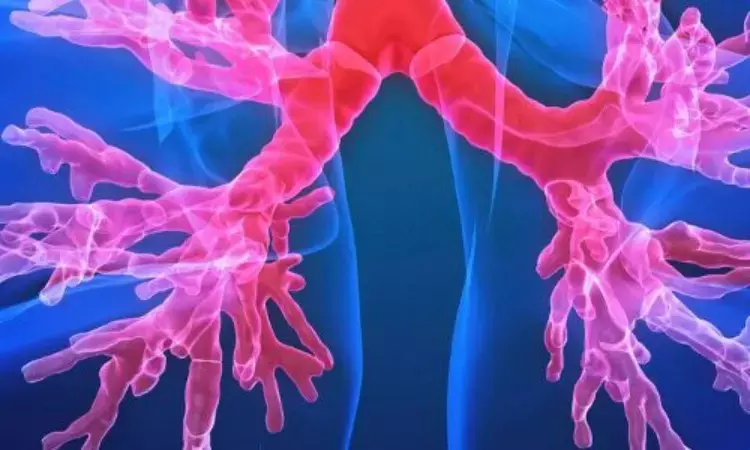- Home
- Medical news & Guidelines
- Anesthesiology
- Cardiology and CTVS
- Critical Care
- Dentistry
- Dermatology
- Diabetes and Endocrinology
- ENT
- Gastroenterology
- Medicine
- Nephrology
- Neurology
- Obstretics-Gynaecology
- Oncology
- Ophthalmology
- Orthopaedics
- Pediatrics-Neonatology
- Psychiatry
- Pulmonology
- Radiology
- Surgery
- Urology
- Laboratory Medicine
- Diet
- Nursing
- Paramedical
- Physiotherapy
- Health news
- Fact Check
- Bone Health Fact Check
- Brain Health Fact Check
- Cancer Related Fact Check
- Child Care Fact Check
- Dental and oral health fact check
- Diabetes and metabolic health fact check
- Diet and Nutrition Fact Check
- Eye and ENT Care Fact Check
- Fitness fact check
- Gut health fact check
- Heart health fact check
- Kidney health fact check
- Medical education fact check
- Men's health fact check
- Respiratory fact check
- Skin and hair care fact check
- Vaccine and Immunization fact check
- Women's health fact check
- AYUSH
- State News
- Andaman and Nicobar Islands
- Andhra Pradesh
- Arunachal Pradesh
- Assam
- Bihar
- Chandigarh
- Chattisgarh
- Dadra and Nagar Haveli
- Daman and Diu
- Delhi
- Goa
- Gujarat
- Haryana
- Himachal Pradesh
- Jammu & Kashmir
- Jharkhand
- Karnataka
- Kerala
- Ladakh
- Lakshadweep
- Madhya Pradesh
- Maharashtra
- Manipur
- Meghalaya
- Mizoram
- Nagaland
- Odisha
- Puducherry
- Punjab
- Rajasthan
- Sikkim
- Tamil Nadu
- Telangana
- Tripura
- Uttar Pradesh
- Uttrakhand
- West Bengal
- Medical Education
- Industry
Hypertonic saline or carbocisteine for bronchiectasis does not impact pulmonary exacerbations: NEJM

A new study published in The New England Journal of Medicine showed that over a 52-week period, neither carbocisteine nor hypertonic saline substantially decreased the mean occurrence of pulmonary exacerbations in bronchiectasis participants.
The efficacy of mucoactive drugs is not consistently outlined in bronchiectasis recommendations, and the usage of these agents varies by region. Thus, this study was set to evaluate the effectiveness of carbocisteine or hypertonic saline in treating bronchiectasis.
In 20 locations across the United Kingdom, this research recruited people with non-cystic fibrosis bronchiectasis who produced sputum every day and experienced frequent pulmonary exacerbations for a study. Those who were now smokers or had recently had mucoactive therapies were not included. In addition to receiving standard treatment, each subject was randomized to one of three groups of mucoactive drugs: either standard care alone, hypertonic saline (the hypertonic-saline group), hypertonic saline + carbocisteine (the combination group), or carbocisteine (the carbocisteine group).
Each category had 2 groups, and the comparisons were between carbocisteine and no carbocisteine and between hypertonic saline and no hypertonic saline. The number of pulmonary exacerbations within a 52-week period was the main outcome. Time to next pulmonary exacerbation, safety, and ratings on disease-specific health-related quality-of-life measures were important secondary outcomes. Randomization was applied to 288 individuals in total. There were no interactions between treatments.
Over the course of 52 weeks, the mean number of adjudicated fully qualifying pulmonary exacerbations was 0.76 (95% CI], 0.58 to 0.95), with hypertonic saline, compared to 0.98 (95% CI, 0.78 to 1.19), with no hypertonic saline (adjusted between-group difference in the means, −0.25 [95% CI, −0.57 to 0.07; P=0.12]), and 0.86 (95% CI, 0.66 to 1.06) with carbocisteine, compared to 0.90 (95% CI, 0.70 to 1.09), with no carbocisteine (adjusted between-group difference in the means, −0.04 [95% CI, −0.36 to 0.28; P=0.81]). The incidence of adverse events, including major adverse events, and secondary outcomes were comparable among the groups.
Overall, hypertonic saline and carbocisteine did not significantly improve quality of life or decrease pulmonary exacerbations in individuals with non-cystic fibrosis bronchiectasis, according to this investigation. These findings highlight the need for more focused study to identify individuals who may benefit from routine use of mucoactive drugs, as they imply that there is no therapeutic benefit.
Source:
Bradley, J. M., O’Neill, B., McAuley, D. F., Chalmers, J. D., De Soyza, A., Hill, A. T., Carroll, M., Loebinger, M. R., Duckers, J., Clarke, M., McLeese, R. H., Ferguson, K., Jackson, A., Campbell, C., McDowell, C., Agus, A., Norrie, J., Copeland, F., Downey, D. G., … CLEAR Investigator Team. (2025). Hypertonic saline or carbocisteine in bronchiectasis. The New England Journal of Medicine, NEJMoa2510095. https://doi.org/10.1056/NEJMoa2510095
Neuroscience Masters graduate
Jacinthlyn Sylvia, a Neuroscience Master's graduate from Chennai has worked extensively in deciphering the neurobiology of cognition and motor control in aging. She also has spread-out exposure to Neurosurgery from her Bachelor’s. She is currently involved in active Neuro-Oncology research. She is an upcoming neuroscientist with a fiery passion for writing. Her news cover at Medical Dialogues feature recent discoveries and updates from the healthcare and biomedical research fields. She can be reached at editorial@medicaldialogues.in
Dr Kamal Kant Kohli-MBBS, DTCD- a chest specialist with more than 30 years of practice and a flair for writing clinical articles, Dr Kamal Kant Kohli joined Medical Dialogues as a Chief Editor of Medical News. Besides writing articles, as an editor, he proofreads and verifies all the medical content published on Medical Dialogues including those coming from journals, studies,medical conferences,guidelines etc. Email: drkohli@medicaldialogues.in. Contact no. 011-43720751


